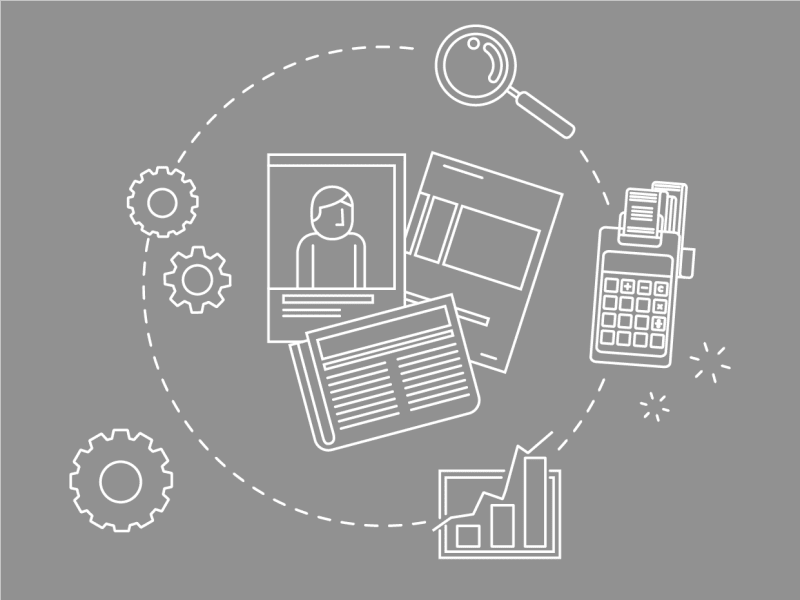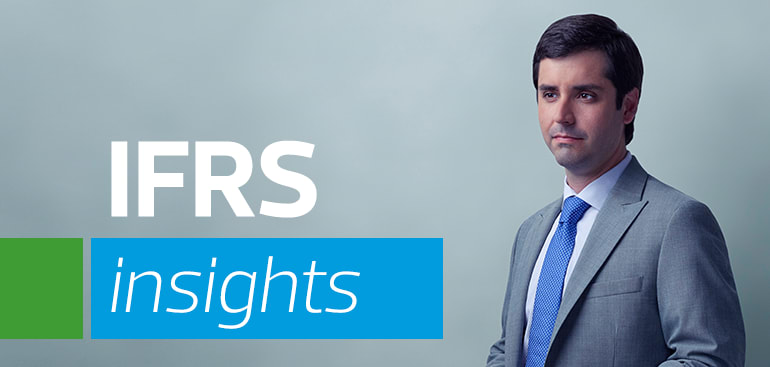Breaking VAT news from RSM's experts around the world, including updates from Greece, Switzerland, United Kingdom, Czechia, United States, Spain and Russia
Greece:
Introduction of real time reporting of invoices
The Greek government is planning to introduce mandatory real-time reporting of invoices from 2020 onwards. The Greek Ministry of Finance has announced that this will commence with invoices issued to public entities (‘B2G’) and to Limited Liability Companies.
What this means
This is part of an on-going trend towards the digitalisation of the VAT reporting and filing requirements that have been introduced. Further announcements are to be expected and affected businesses with relevant activities in Greece need to monitor their position.
Ioannis Tentes, RSM Greece
Switzerland:
VAT registration for sales of low value goods by overseas providers
The Swiss authorities (by way of legislation effective from 1 January 2019) have moved to change the law regarding low value goods being imported into Switzerland, such that overseas importers of such goods selling them for CHF 100,000 or more, are required to register and account for Swiss VAT on all sales.
The import of goods in Switzerland is subject to import VAT and the overseas seller does not have to invoice Swiss or foreign VAT. However, from a Swiss VAT perspective, until 31 December 2018, ‘low value’ imports, meaning goods whose value are below CHF 65 (if a 7.7 % rate is applicable) or CHF 200 (if a 2.5 % rate is applicable), were not subject to import VAT.
This resulted in unfair competition with Swiss companies selling the same goods to Swiss customers you would in the same circumstances be required to charge VAT. The law has therefore been amended such that all overseas companies exporting goods to Switzerland where the value is below CHF 65 (if a 7.7 % rate is applicable) or CHF 200 (if a 2.5 % rate is applicable) and where the turnover from such sales is CHF 100’000 or more due will require a VAT registration.
What this means
This measure is part of a concerted effort in a number of countries to ensure that low value goods made by overseas traders do not escape the domestic VAT net thus leading to evasion and unfair competition over domestic sellers of the same goods. Those exporting to Switzerland in such circumstances should consider their compliance requirements carefully in view of the changes.
Daniel Spitz, RSM Switzerland
United Kingdom:
Import VAT recovery by non-owners
A change in HMRC policy means that claims for import VAT recovery by businesses after 15 July 2019 who do not own the goods being physically imported into the UK (even if they are named as the importer of record and are in possession of a valid import VAT certificate known as a C79 document) will be disallowed.
HMRC has identified what it considers to be ‘incorrect treatment’ in the following situations:
- Toll manufacturers, where the title in the imported goods remains with the overseas customer. The Brief advises that the correct procedure is for the owner of the goods to be the importer of record, not the toll manufacturer, i.e. for the owner of the goods to register for VAT and reclaim the import VAT. If not UK registered, then the import VAT may be reclaimed under the Thirteenth VAT Directive refund procedure for non-established businesses.
- Where the title in the goods has passed before import into the UK, then the correct procedure is for the new owner of the goods to be named as the importer of the records and to reclaim the import VAT, and not the previous owner.
What this means
From 15 July 2019 HMRC will only allow claims for import VAT deduction if the owner of the goods is recorded as the importer of records and is the person making the claim for import VAT recovery.
Affected businesses should therefore review existing contractual terms and/or existing supply chains and incoterms to ensure that import VAT recovery may still be available going forward.
As well as toll manufacturers, other affected businesses will include those that import drugs for use in test pharmaceutical trials, as the person who has legal title to the drugs is often based outside of the UK.
Andy Ilsley, RSM UK
Czechia:
VAT exemption on export
A recent CJEU judgment in the case of Vins has served to clarify the rules for application of VAT exemption (with input tax credit) when exporting goods outside the EU. This case could be quite relevant for the export of goods to the UK after awaiting a ’hard Brexit’. It specifically asks the question if the post office document (confirming releasing goods outside the EU, whereas release is correctly made post office just by “act” considered to be customs declaration) is sufficient proof to be allowed to apply VAT exemption on the export of goods.
The taxpayer, Milan Vins, sent around 450 items of military memorabilia per month by post to non EU destinations from 2012 to 2014. Vins had the view that these goods were exported outside the EU and therefore could be ‘zero-rated’ (i.e. VAT exempt with associated VAT recovery) on the basis that documents issued by the postal services were suitable evidence of a non EU destination. The Czech tax authorities however argued that this evidence was not sufficient in itself as the condition of placing the goods under a customs procedure was not satisfied. Thus, the question was whether the goods must first be placed under a particular customs procedure in order to benefit from the export exemption.
The CJEU has confirmed that zero-rating does not depend on the formal placing of the goods into the export customs arrangements and consequently the evidence adduced in this case was acceptable.
What this means
The Czech VAT Act has been amended and whilst the requirement for a customs declaration as proof of the fact that goods have left the EU still remains; further evidential requirements have been set which arguably go beyond those set out in the judgement. It does remain however important that when goods are being exported from the EU that procedures and evidence held are within the requirements set out in the exporting country’s legislation.
Kateřina Provodová, RSM Czech Republic
United States:
US businesses that have incurred VAT in the UK, have been granted additional time to obtain the valid certificates necessary in order to enable HMRC to revisit refund claims under the EU Thirteenth Directive, (the mechanism by which non EU businesses can, in certain situations, reclaim VAT incurred in the EU as part of their business activities) which had previously been rejected for years 2016, 2017 and 2018 because of a change in HMRC’s operational procedures for accepting them. Under the original announcement, US businesses had to have obtained the required certificates by 31 March 2019, but in recognizing the administrative difficulties caused by the recent US government shut-down, this deadline has been extended to 30 May 2019.
What this means
The Thirteenth Directive provisions, allowing US businesses to recover UK VAT correctly charged directly from HMRC, if not otherwise required to be registered in the UK, are under the spotlight in the current Brexit process, and this extension to the deadline should be noted where claims have been rejected in the circumstances set out above.
Duncan Stocks, RSM US
Spain:
In another Thirteenth Directive claim case, a timely reminder has been issued from the CJEU of the potential challenges that UK claimants might have post-Brexit, in submitting claims for VAT refunds under the Thirteenth Directive.
In the Nestrade case, a Swiss company had submitted invoices in support of claims for Spanish VAT but these quoted its Dutch VAT registration number and thus were rejected by the Spanish Tax Authorities. As it did not submit corrected invoices until after the deadline had expired, the further claim was out of time and also rejected. The CJEU found that it was not unreasonable for the Spanish Tax Authorities, in the circumstances to have done so.
What this means
Such Thirteenth Directive claims are subject to tight time-limits and conditions, such that if these are not adhered to, authorities are within their rights to refuse any such claims - The judgment emphasises the importance of having systems in place to claim VAT in this way on time and supported by adequate evidence.
Pol Soucheiron, RSM Spain
Russia:
Clarification of new rules for e-service providers
The Russian Tax Authority (RTA) has recently met with both tax and industry professionals to discuss the application of VAT on electronic services (e-services) which had taken effect from 1 January 2019 and which in principle required all non-resident providers of such services to register for VAT in Russia. Following this meeting, the RTA prepared a draft position paper that it plans to issue soon.
Prior to the implementation of the new B2B e-services rules effective from 1 January 2019, when non-residents made B2B supplies of e-services into Russia, the customer was responsible for paying VAT directly to the tax authority and withhold that element of the payment to the supplier. The change now requires Russian customers to pay VAT directly to the non-resident supplier, which is then in turn required to register and pay VAT to the RTA via quarterly VAT returns.
However, a number of tax and industry professionals have asked the RTA to issue guidance on a number of practical issues, including whether the non-resident supplier would be penalised if the VAT payment continued to be withheld and paid directly by the customer.
What this means
The position paper will help provide clarification but, in the meantime, non-Russian providers of e-services to Russian customers (whether B2B or B2C) should consider the compliance position carefully to ensure that they are not caught out.
Input tax recovery on exported services
A law allowing taxpayers to recover input VAT on goods and services used in providing services outside Russia (‘exported services’) has recently been adopted and will be effective from 1 July 2019.
Currently the export of goods and to a limited list of services (such as international transportation services) are ‘zero-rated’, meaning that VAT is not accounted for on the sales, but input tax incurred in respect of them is recoverable. This input tax recovery is being extended to VAT on goods and services used in providing, inter alia, marketing, consulting, and advertising services.
What this means
This represents an opportunity to increase VAT recovery in this area where such activities are undertaken in Russia and the extended VAT recovery opportunity needs to be fully considered.
Anna Zhukova, RSM Russia







